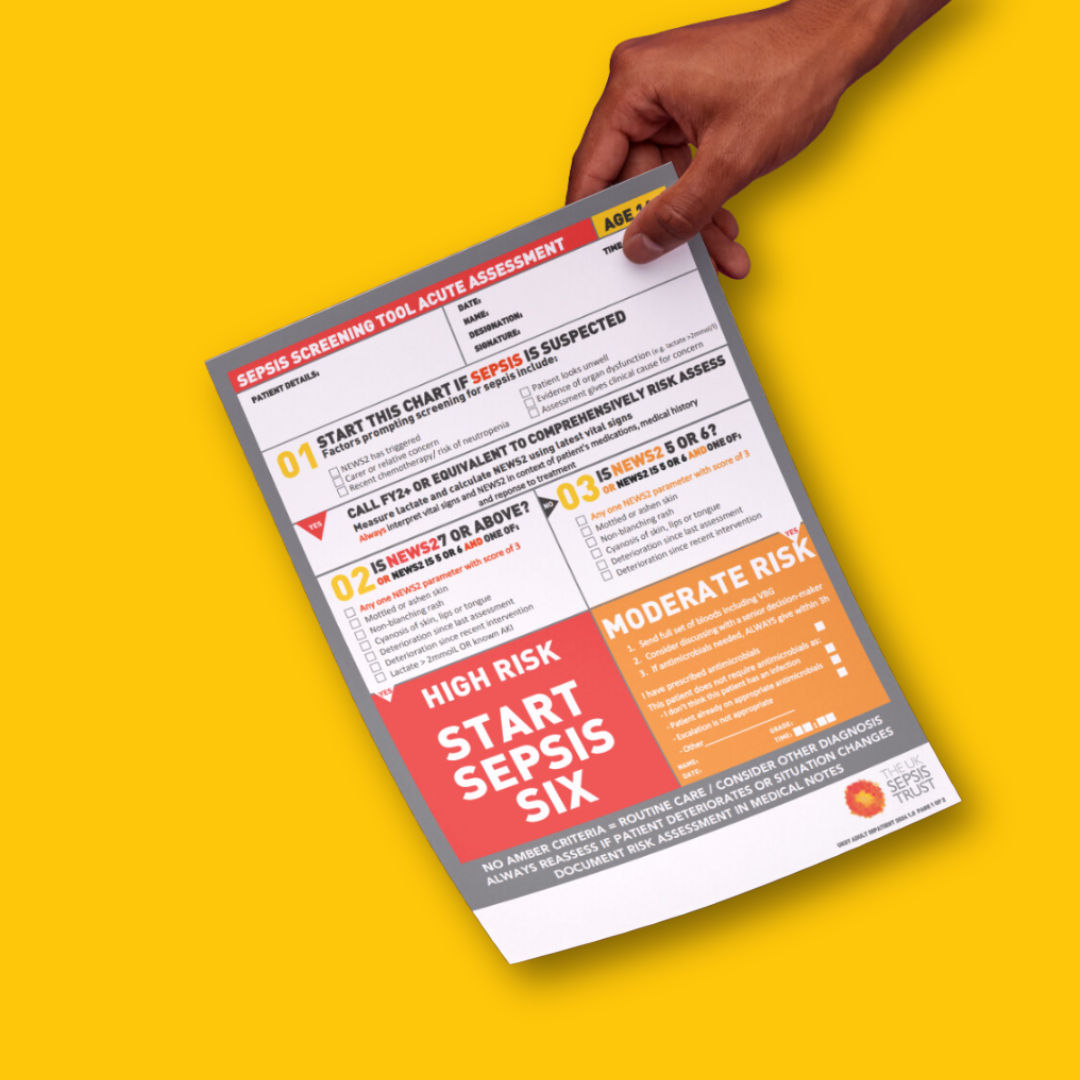The UK Sepsis Trust (UKST) welcomes updates to the National Institute for Health and Care Excellence (NICE) sepsis guideline (NG51) issued on Wednesday 31st January 2024.
The NG51 guideline ‘Sepsis: recognition, diagnosis and early management’ has been newly updated, having first been developed in 2016 after UKST lobbying.
This guideline covers the recognition, diagnosis, and early management of sepsis for all populations, and is aimed at people with sepsis, their families and carers, as well as healthcare professionals working in primary, secondary and tertiary care.
The latest changes include updates to the language regarding the risk stratification of adults, the appropriate timing for antibiotic delivery for different risk categories, and the reassertion of the importance of clinical judgment.
UKST Founder & Joint CEO Dr Ron Daniels said: “We welcome that NICE have provided this important update to their national guidance. We particularly support that the update continues to recommend the identification of High Risk factors, whilst reinforcing the importance of clinical judgement to prevent injudicious use of antibiotics. The recommendation for GPs and ambulance services to consider how they give antibiotics to people that are at high risk of sepsis is increasingly relevant as transit times increase, and could be potentially transformational in terms of patient outcomes. These revisions help end a period of instability, with healthcare professionals previously facing varying guidance from the Academy of Medical Royal Colleges. We’re now presented with an opportunity to deliver a coordinated and cohesive approach to the recognition and management of sepsis across the NHS. We’re delighted to be supporting the updated NICE guideline with a suite of clinical tools, which we hope will be used by healthcare practitioners to save lives.”
UKST’s free clinical tools have been updated in order to be compatible with the updates within NG51, and reflect an operational solution to delivery of the NHS Implementation Guidance.
Since 2015, UKST has collaborated with various organisations to produce operational clinical tools for all ages (except specifically for neonates) across a wide range of healthcare settings.
The charity hopes that its clinical tools will be used to reduce preventable sepsis deaths, with 48,000 people currently dying of sepsis annually in the UK, and lead to improved outcomes for the 245,000 individuals affected by the condition in the UK each year.
UKST clinical tools are accessible here.



